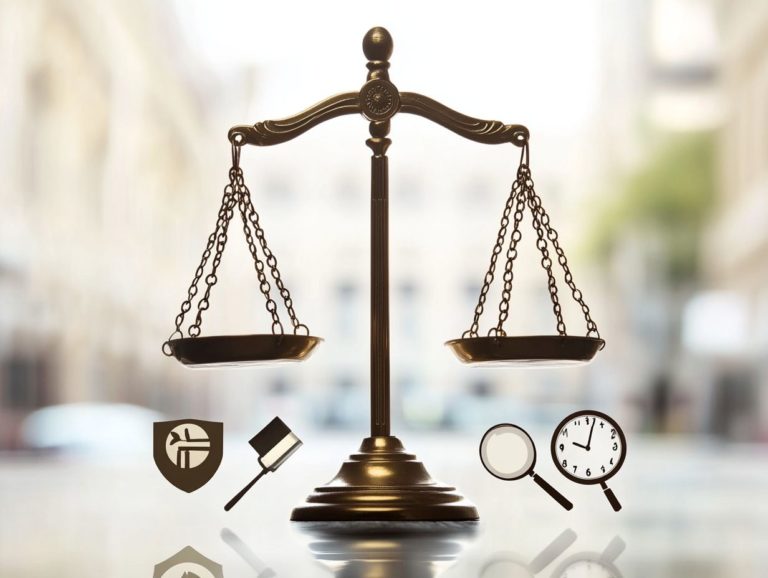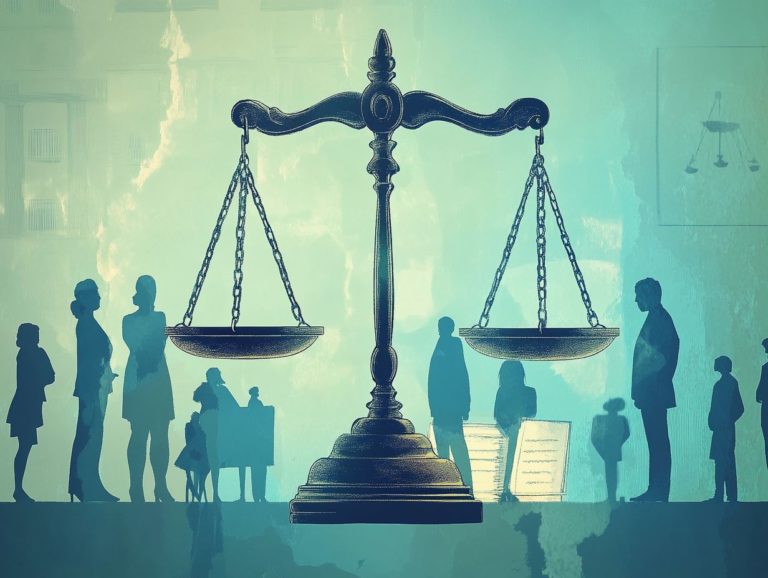5 Key Steps to Protect Your Rights
Understanding your rights is essential in today s dynamic environment. This ensures a workplace that is free from discrimination, fair pay, and adherence to laws like the Equal Pay Act. Awareness serves as your primary line of defense.
This article delves into five critical steps designed to help you safeguard your rights effectively. From documenting incidents to seeking legal counsel, you will be guided through practical actions you can take.
Stay informed! Gather support and advocate for your rights with unwavering confidence.
Contents
Key Takeaways:

Know your rights as a citizen to better protect them.
Documenting incidents can provide evidence to support your rights.
Seeking legal advice can help navigate complex rights issues.
Remember, knowing your rights is the first step to defending them!
1. Know Your Rights
Understanding your employee rights is essential for creating a workplace that is free from discrimination. This ensures a safe environment and fair pay.
When you grasp these rights, you empower yourself to recognize instances of workplace discrimination. You can advocate for a safe working environment, which is fundamentally important for promoting human rights in the workplace.
Being aware of specific protections related to workplace safety, such as the Occupational Safety and Health Act, enables you to identify hazards. You can report unsafe conditions without the fear of retaliation.
Understanding the Equal Pay Act allows you to recognize your worth. It ensures that you receive equitable pay for equal work.
Legal frameworks like the Americans with Disabilities Act show how you can seek necessary adjustments made to help employees perform their job more effectively. This fosters inclusivity in the workplace.
By staying informed, you can gather support, spotlight violations, and advocate for the changes needed to create a culture that safeguards your rights and elevates the entire workforce.
2. Document Everything
Documenting every detail related to workplace harassment, wage violations, and employee mistreatment is crucial. It helps establish a solid foundation for any claims regarding workplace discrimination, especially when legal proceedings are on the horizon.
Comprehensive documentation think emails, meeting notes, and incident reports becomes an invaluable asset in these situations. When you meticulously record specific incidents with dates, times, and people involved, you bolster your case and craft a clearer narrative for investigators to follow.
In instances of wage violations, having your pay stubs and correspondence regarding salary at the ready can effectively highlight any discrepancies.
Organizations like OSHA stand ready to assist. They offer guidance on filing complaints and ensure that your rights as an employee are upheld, fostering a safer and more equitable work environment for everyone.
3. Seek Legal Advice
Seeking legal advice is an essential step if you’re facing challenges related to workplace discrimination or your broader employee rights. It connects you with experts who can navigate the intricate legal landscape and advocate on your behalf.
Understanding your rights gives you the power to speak up and take necessary actions. This is especially important when you encounter obstacles like insufficient workplace adjustments or unfair treatment.
Legal professionals are crucial in helping you communicate your needs. They ensure your employer complies with statutory obligations, whether that involves negotiating modified work schedules or securing specialized equipment.
Human rights organizations can provide invaluable support in escalating disputes to a legal level. This gives you a stronger foundation if you’re uncertain about pursuing your claims. For instance, cases involving disability discrimination or harassment often significantly benefit from legal counsel, clarifying pathways for formal complaints and potential litigation.
4. Take Action
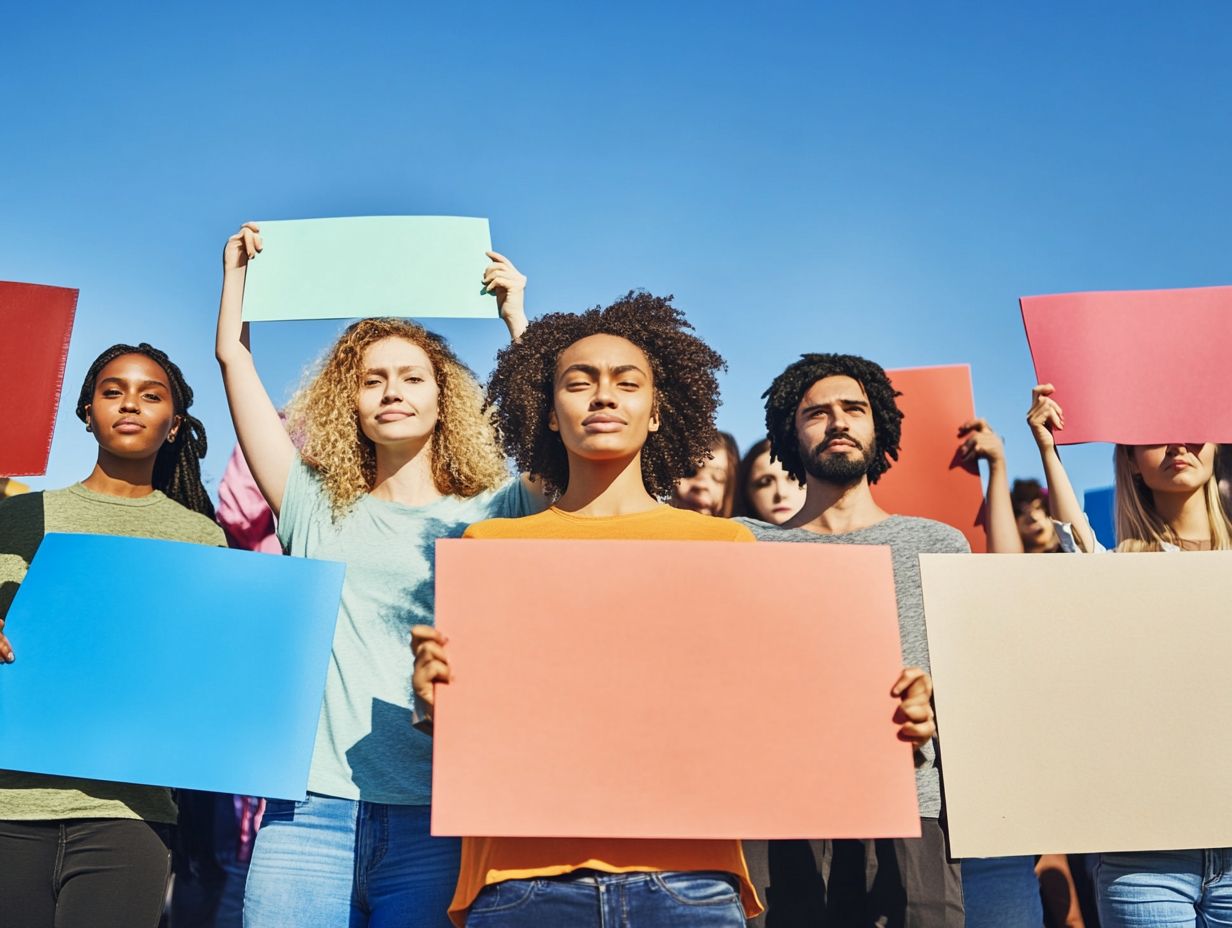
Taking action to support employee rights, whether through social movements or community involvement, is essential for creating a discrimination-free workplace. This encouragement helps the U.S. Government and other entities uphold these rights.
By engaging in support groups, you can amplify your voice alongside others who share similar goals. When you participate in protests, you raise awareness and demonstrate solidarity. This fosters a sense of unity that can catalyze significant change.
Utilizing social media platforms allows you to reach broader audiences. You can share personal stories and success narratives that resonate deeply with others.
Successful initiatives like the Fight for $15 movement showcase how community-driven actions can influence workplace policy. These efforts drive improvements in minimum wage laws and enhance employee rights across various industries. These actions show how community involvement can lead to important changes in the workplace.
5. Stay Informed and Educated
Staying informed about workplace issues, such as harassment and fair pay, is essential, especially on days like International Human Rights Day when the spotlight is on human rights and advocacy efforts.
By engaging in workshops, webinars, and utilizing the resources provided by human rights organizations, you can gain invaluable insights into your rights and responsibilities. This ongoing education deepens your understanding of evolving employment laws, empowering you to protect yourself and support your colleagues in difficult situations.
Equipped with up-to-date knowledge, you can confidently voice your concerns and advocate for fair practices. This helps cultivate a culture of respect and equality in your workplace. Ultimately, continuous learning transforms workplaces into environments where everyone feels safe, valued, and empowered.
What Are Your Basic Rights as a Citizen?
- The freedom to express your opinions without fear of retribution.
- Equal protection under the law regardless of your background.
- The right to seek fair treatment in all employment contexts.
As a citizen, you are entitled to a comprehensive array of protections that safeguard your human rights, civil rights, and the assurance of fair treatment under U.S. Government laws. This highlights the importance of social justice and equality, especially on significant occasions like International Human Rights Day.
Major civil rights movements, such as the remarkable efforts led by Dr. Martin Luther King Jr. and pivotal legislation like the Civil Rights Act of 1964, have been instrumental in solidifying and expanding these rights. They ensure you have a voice and a platform to advocate for justice.
Additionally, movements championing LGBTQ+ rights and gender equality have transformed the landscape of civil liberties, fostering a more inclusive understanding of citizenship.
What Are Some Common Violations of Rights?
Common violations of rights, such as workplace discrimination, harassment, and wage violations, erode employee rights. This underscores the necessity for robust employment laws to safeguard individuals in various environments.
These issues are alarmingly prevalent, with recent studies revealing that nearly 30% of employees have encountered some form of discrimination during their careers.
Consider a case highlighted by the Equal Employment Opportunity Commission, where an employee faced persistent harassment. The company failed to take appropriate action despite numerous complaints.
Legal frameworks like Title VII of the Civil Rights Act, which prohibits employment discrimination, and the Fair Labor Standards Act, which establishes minimum wage and overtime pay, are in place to tackle these challenges. However, enforcing them can be an uphill battle.
You must understand your rights now to protect yourself and others. Reporting violations not only aids your own situation but also fosters a culture of accountability within organizations.
How Can Documenting Help Protect Your Rights?
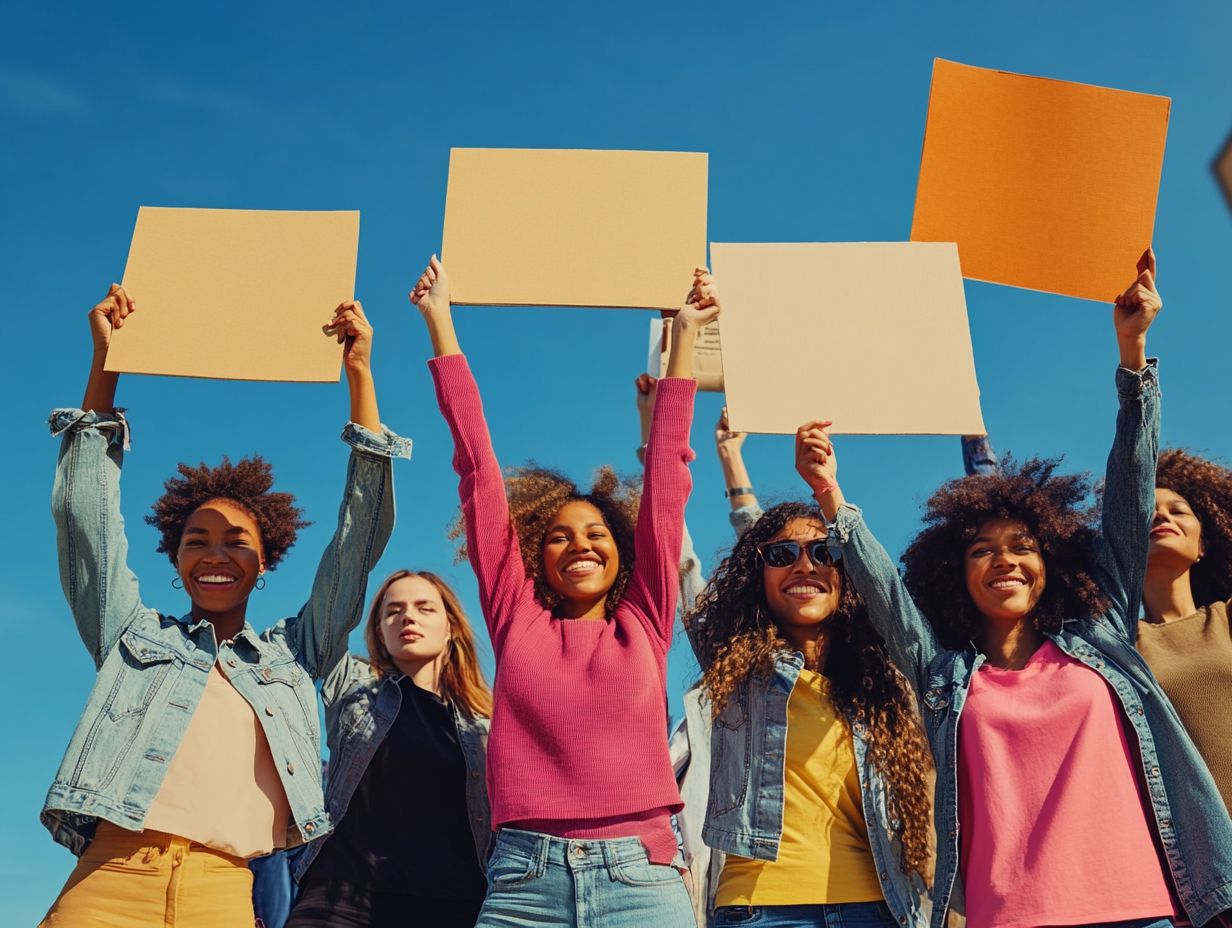
Documentation is a powerful tool. It protects your rights and provides evidence against harassment, wage violations, and discrimination in the workplace.
By systematically recording each incident and capturing details like dates, times, and locations, you can create a clear timeline that supports your experiences. This careful approach shows patterns of misconduct and boosts the credibility of your claims.
Having this information ready can significantly strengthen your case, helping to prove that your rights were violated.
Ultimately, effective documentation acts as your safeguard. It reinforces your standing and ensures you re equipped with the necessary evidence to advocate for yourself.
What Are the Benefits of Seeking Legal Advice?
Seeking legal advice offers a wealth of benefits, including expert guidance on your employee rights and support in securing reasonable accommodations.
Accessing legal expertise allows you to confidently navigate the intricate landscape of employment laws and regulations. It gives you the power to grasp the nuances of your situation, ensuring you are fully informed about your rights and the remedies available to you.
Personalized legal advice can illuminate potential courses of action. This enables you to make informed choices tailored to your unique circumstances.
With expert support by your side, you ll be better equipped for negotiations or even litigation. This can significantly enhance your chances of a favorable outcome and strengthen the protection of your rights in the workplace.
What Are Some Ways to Take Action in Protecting Your Rights?
There are numerous ways for you to take action in protecting your rights. This includes engaging in your community, advocating for employee rights, and participating in social movements.
By joining local organizations, you can cultivate a support network that amplifies your voice and fosters a true sense of belonging. Participating in workshops will arm you with crucial knowledge about your rights and encourage your active involvement in discussions that truly matter.
Utilizing social media platforms allows you to spread awareness and connect with like-minded individuals who share your goals.
Engaging in collective actions whether organizing campaigns or attending rallies can profoundly influence workplace policies. This shows how powerful unity can be!
How Can Staying Informed and Educated Help Protect Your Rights?
Staying informed and educated about your rights gives you the power to advocate effectively against workplace discrimination. Your understanding of employee rights is greatly enhanced by resources from human rights organizations.
By participating in workshops, online courses, and exploring various materials these organizations offer, you equip yourself with the tools necessary to recognize and combat injustices. This ongoing education fosters a culture of vigilance, making it easier for you to identify potential violations before they escalate.
Understanding your rights not only instills confidence but also encourages collective action, enabling groups to unite and address issues within their work environment.
As you gain the insights needed to navigate complex legal terrains, proactive measures become second nature. This ultimately contributes to safer and more equitable workplaces for everyone.
Frequently Asked Questions
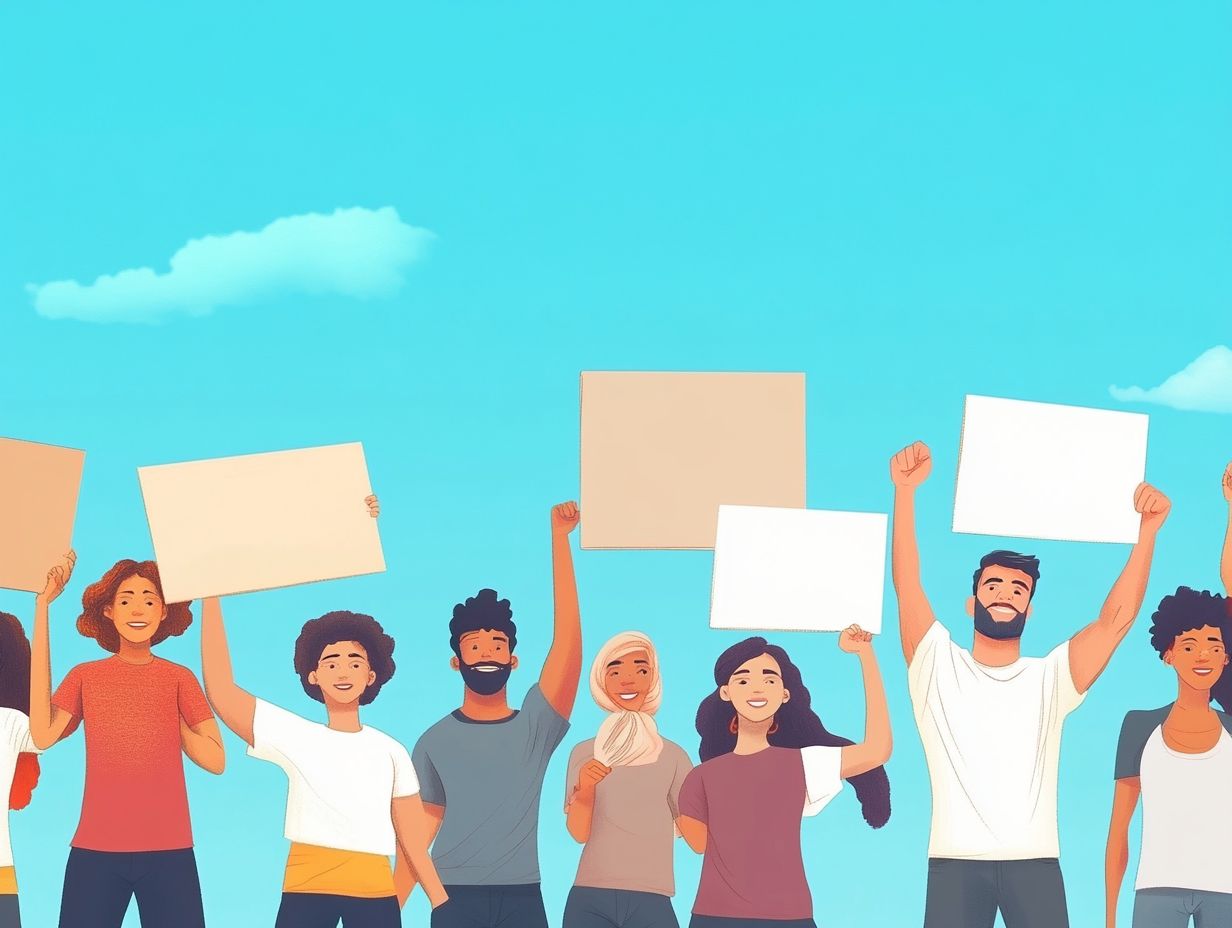
What are the 5 key steps to protect your rights?
The 5 key steps are: knowing your rights, documenting evidence, seeking legal advice, standing up for yourself, and educating others.
How do I know what my rights are?
You can find out what your rights are by researching the laws and regulations in your area, consulting a lawyer or legal advisor, or contacting a rights advocacy organization.
Why is it important to document evidence?
Documenting evidence supports your case and proves any violations of your rights. This proof can be vital if you need to take legal action later.
When should I seek legal advice?
Seek legal advice if you think your rights have been violated or if you re uncertain about your rights in a situation. A lawyer can clarify your rights and guide you on how to protect them.
What does it mean to stand up for yourself?
Standing up for yourself means being confident and speaking out when your rights are at risk. It involves advocating for yourself and taking action to safeguard your rights.
How can I educate others about my rights?
You can educate others by sharing information and resources. Speak out about your experiences and raise awareness to help prevent future violations.



